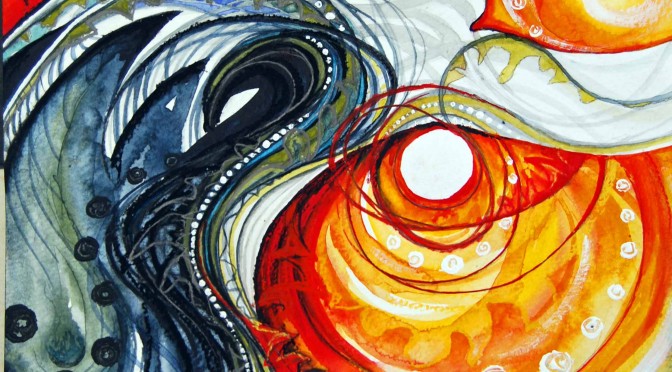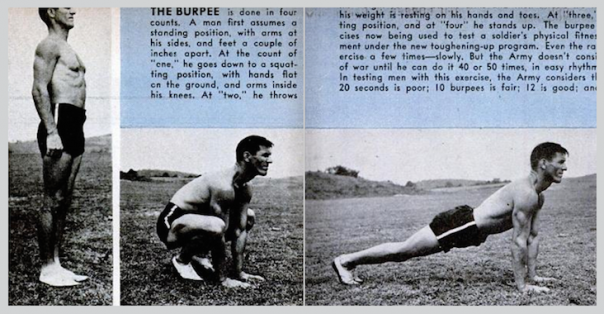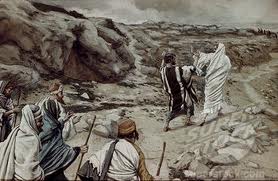**sermon art: Beyond by Colleen Briggs
Caitlin Trussell with Augustana Lutheran Church on May 28, 2023
[sermon begins after three Bible readings – it’s okay, they’re short]
Numbers 11:24-25a Moses went out and told the people the words of the Lord; and he gathered seventy elders of the people, and placed them all around the tent. 25Then the Lord came down in the cloud and spoke to him, and took some of the spirit that was on him and put it on the seventy elders; and when the spirit rested upon them, they prophesied. But they did not do so again.
Acts 2:1-12 When the day of Pentecost had come, [the apostles] were all together in one place. 2And suddenly from heaven there came a sound like the rush of a violent wind, and it filled the entire house where they were sitting. 3Divided tongues, as of fire, appeared among them, and a tongue rested on each of them. 4All of them were filled with the Holy Spirit and began to speak in other languages, as the Spirit gave them ability.
5Now there were devout Jews from every nation under heaven living in Jerusalem. 6And at this sound the crowd gathered and was bewildered, because each one heard them speaking in the native language of each. 7Amazed and astonished, they asked, “Are not all these who are speaking Galileans? 8And how is it that we hear, each of us, in our own native language? 9Parthians, Medes, Elamites, and residents of Mesopotamia, Judea and Cappadocia, Pontus and Asia, 10Phrygia and Pamphylia, Egypt and the parts of Libya belonging to Cyrene, and visitors from Rome, both Jews and proselytes, 11Cretans and Arabs—in our own languages we hear them speaking about God’s deeds of power.” 12All were amazed and perplexed, saying to one another, “What does this mean?” 13But others sneered and said, “They are filled with new wine.”
John 20:19-23 When it was evening on that day, the first day of the week, and the doors of the house where the disciples had met were locked for fear of the [religious authorities], Jesus came and stood among them and said, “Peace be with you.” 20After he said this, he showed them his hands and his side. Then the disciples rejoiced when they saw the Lord. 21Jesus said to them again, “Peace be with you. As the Father has sent me, so I send you.” 22When he had said this, he breathed on them and said to them, “Receive the Holy Spirit. 23If you forgive the sins of any, they are forgiven them; if you retain the sins of any, they are retained.”
[sermon begins]
There are these moments when you just know that your vantage point isn’t big enough. Perspective is a faraway dream. You can’t envision the next minute much less the next year. It happens fast too. One minute you’re mesmerized by the mountains’ soaring arc, jagged peaks that break the morning light and steal your breath. The next, you’re wondering what the heck is happening. Your world goes from large and expansive to small and immediate. In calmer moments like these here in worship, we can look at the small times with a bit of objectivity, gaining a toe hold in perspective. For me, perspective feels like a breath of air, like the spirit opening up clarity where there once was fog. Reminding me yet again that the world and God’s story are a place where I find comfort, meaning, and hope, along with so many of you. A place brightened by jagged pieces of glass, by crosses on roofs/walls and ceilings, by colorful wine and grape juice, but more importantly brightened by a people who faithfully and imperfectly live out God’s dream of a world that lives the love it receives.
God’s love letter is written in the pages of this book, well really 66 books made to look like one book. Many authors finally wrote down stories that they had been told by heart and learned by heart. Scribes, copying the various books onto new paper, added their own twists to beloved Bible verses thinking clarity was needed – for example, the woman caught in adultery is one of them – until finally we have this imperfect book, filled with imperfect people, through which the Holy Spirit works to shatter our assumptions and widen our perspective once more.
The Holy Spirit works through a multi-generational story. In the beginning, the Bible goes, when the earth was a formless void and darkness covered the face of the deep, God’s Spirit swept over the face of the waters. In our reading from the book of Numbers, we’re told that God took some of the spirit that rested on Moses and gave it to seventy elders who prophesied. We heard in our reading from John’s gospel that Jesus breathed the Holy Spirit on his followers after sharing a word of peace. And in Acts, Jesus’ apostles were filled with the Holy Spirit as the sound of the wind roared, and flames like fire licked at their ears. The spirit moved over waters, through elders, over apostles, and today in the church around the world. The story is multi-generational – from the earliest moments, to Moses, to the elders, to Jesus’ apostles, to Jews from all over the world in Jerusalem, to now. A sweeping arc of history that plants us firmly in God’s dream for the world. Us, Augustana, a small corner of God’s whole church. A church that has gathered for almost 150 years. Through thick and thin. Through many and few. Still we gather.
I’m pretty sure that I’m not the only one that needs a dose of God’s vision from time to time. With anger raging through airwaves, cable boxes, and social medias, we all need a reminder that God’s dream is not anger or greed or survival or fear. God’s dream is more like what Moses and the elders experienced in that wilderness camp after they left Mount Sinai in Wilderness, Part II. The spirit wasn’t hoarded. It was shared and spread through people who expanded God’s work as the people wandered in that wilderness. They may have been lost but they were not abandoned by God. They were not alone. It’s because the spirit was shared and spread, that there was an incarnation of God in Jesus Christ. God in the flesh on the very first Christmas. God showing up to remind the world once again that God’s dream is a bigger vision than we can conceive. We are part of that dream.
By the time the spirit shows up in Jesus’ apostles in the Acts story, God’s spirit had poured into Jesus’ ministry, through his wounds on the cross, and out of an empty tomb. His death on the cross was a self-sacrifice of such magnitude that it’s hard to imagine the depth of God’s love that inspired it. There was no hand raised in violence against the ones who executed Jesus. Instead, at the time of his arrest, Jesus said to put away the sword as he raised his hand in healing. From the cross, Jesus said, “Father, forgive them for they know not what they do.”
Jesus teaches us that peace in the Holy Spirit is quite different than our imaginings of satisfaction and retribution. And thank God for that. Because, if not for God’s people, where would the human urge for vengeance finally stop once and for all. There must be a different way. Jesus’ way. The way of the church. A way forward through forgiveness – forgiving each other, for sure, but also forgiving ourselves for whatever we classify as unforgiveable acts. Forgiveness is dying and rising through our baptisms every day. Allowing regret to teach us. Because if we don’t regret the hurt we inflict on our selves and each other, how will we learn from Jesus the different way of being human together.
Speaking of being human together, let’s look at the Acts story. Jews from all over the world were in Jerusalem for Shavuot, 50 days after Passover, celebrating the gifts of the 10 Commandments given to Moses and the first five books of the Bible – what Jews call the Torah and what Christians call the Pentateuch. We share much across the generations with our Jewish cousins in the faith.
My brother who is Jewish recently made a visit to see me. He attended 8 a.m. worship to watch his sister in pastorly action and, not for the first time, he was struck by the similarities in Jewish and Christian worship services. Not a surprise given that our roots are the same. The Jews in Jerusalem for Shavuot heard the earliest Jewish Christians, preach in the power of the spirit. The overwhelming commotion blew minds. But it was this moment that inspired, literally inspired by the spirit, the earliest Jesus followers to find the courage to leave their locked rooms and form the church. A church that exists to remind a struggling world that God’s last word is love.
For some people, believing in God’s love seems more difficult than believing in God. It’s somehow easier to believe that the anger, fear, and judgement we feel on a day-to-day basis is really God’s true self too. But our God is one who loves the world. Who showed up in Jesus to instruct us and forgive us when we fall short of love’s purpose. A God who formed the church to remind the world just how beloved we all are – and I mean the collective “we” of the world, not just the church.
A beloved world behaves differently than a shamed world. So does a beloved church. And, my dear church of the generations, you are beloved in God’s dream for the world. You are filled with the Spirit to receive God’s love new each day as reassurance when your vision grows dim and your perspective shrinks. Being church together by the power of the Spirit reminds us that God promises to always be with us even when we feel we don’t deserve it or aren’t up to the task laid before us. Thank God that God’s generational story includes our generations here on the planet now, here in this room now. We are how God’s love is revealed to each other and beyond. Thanks be to God and amen.


![Mr. Irrelevant 2017 is a Denver Bronco [OR The Last Will Be First…Thank God!] Matthew 20:1-16 and Jonah 3:10-4:11](http://caitlintrussell.org/wp-content/uploads/2017/09/mr-irrelevant-2017-nfl-bronco.sermon-Caitlin-Trussell-672x372.jpg)
![En Pointe, On Point: Dance Made It More Possible For Me To Live [OR Holy Trinity Sunday] John 16:12-15; Proverbs 8:1-4, 22-31; and Romans 5:1-5](http://caitlintrussell.org/wp-content/uploads/2016/05/point-shoes.en-pointe.2.sermon-Caitlin-Trussell-672x372.jpg)







